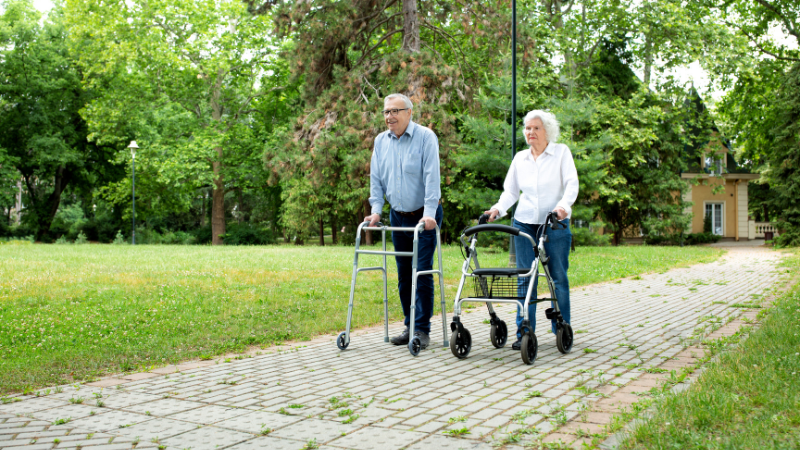Functional mobility is crucial for daily living, allowing seniors to move from one room to another without fearing a fall. As people age, concerns about walking difficulties often arise. Here’s an overview of common walking issues in older adults.
Easeful walking is essential for independence. Seniors need to navigate to the bathroom, kitchen, and front door, and perform errands like grocery shopping or visiting the post office. Even simple tasks, such as getting out of bed, rely on the ability to walk.
However, aging can lead to a slower pace and increased fear of falling, even over short distances at home. When these concerns surface, it’s vital for seniors to have their walking patterns evaluated by a physician.
Walking difficulties are common among the elderly. About 30 percent of seniors report that walking three city blocks or climbing one flight of stairs is a significant physical challenge. Additionally, approximately 20 percent of seniors use mobility aids, such as canes or walkers.
Consequences of Immobility
Physical, psychological, and social consequences can arise from walking problems. Immobile seniors may struggle to reach the bathroom in time, leading to accidents and potential urinary tract or skin infections.
Psychologically, immobility can be devastating. Seniors who find walking difficult may become isolated, unable to visit friends, take a walk, or dine out. This can lead to reclusiveness, isolation, and depression.
Risk Factors for Immobility
Several factors can contribute to walking difficulties in older adults. These include advancing age, lack of physical activity, impaired strength and balance, and obesity. Chronic diseases like diabetes and arthritis also increase the risk of immobility.
Less common but significant risk factors include depression, cognitive issues, and feelings of helplessness. Recent hospitalization, alcohol consumption, and smoking can also exacerbate walking problems.
When Do Gait Changes Appear?
Gait changes typically manifest in individuals in their late 60s or 70s, due to gradual nerve and muscle decline and deteriorating vision. Seniors with diabetes or obesity may experience a more rapid decline in walking abilities, particularly those with diabetic neuropathy.
Falls and their health repercussions are the most severe outcomes of walking issues. Contrary to popular belief, falling is not a normal part of aging and can often be prevented with medical intervention.
Medical Intervention for Walking Issues
Medical rehabilitation programs can significantly improve walking issues, especially when coordinated by a physiatrist or a physician trained in physical medicine. These programs often include physical and occupational therapy.
A physiatrist evaluates a senior’s gait and designs a tailored program for improvement. This evaluation includes observing walking speed and patterns, stride length and width, weight transfer between legs, and balance. The Get Up and Go Test may also be performed, where mobility is assessed by having the senior stand up from a chair, walk 10 feet, turn, and sit back down.
Addressing walking difficulties early can prevent a loss of mobility. Seniors are encouraged to engage in strength training and physical therapies to improve balance. Treating underlying medical conditions is also crucial to maintaining mobility.
Screening for mobility challenges is vital as it can determine whether a senior can continue living at home or requires a care facility. Loss of walking ability increases the risk of falls and potential hip fractures, which can have fatal complications.
Senior Care Services
Fortunately, seniors have access to care options that can improve walking problems. myUDAAN Care provides in-home support to help seniors live comfortably and independently. Our companion care services help prevent social isolation and loneliness through activities, conversations, and outings, fostering friendships with our clients.
Our transportation services are invaluable, driving seniors to physical therapy sessions, doctor’s appointments, and social events, thereby preventing isolation. Additionally, we assist with daily activities, such as meal preparation, toileting, personal care, light housekeeping, medication reminders, and bed transfers.
myUDAAN Care is preferred by families and seniors. Our bonded caregivers deliver peace of mind and invaluable elder care. Contact our office at (+91) 9320776611 to book a care plan for your loved one.

Leave a Reply